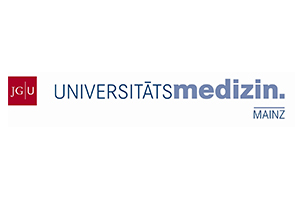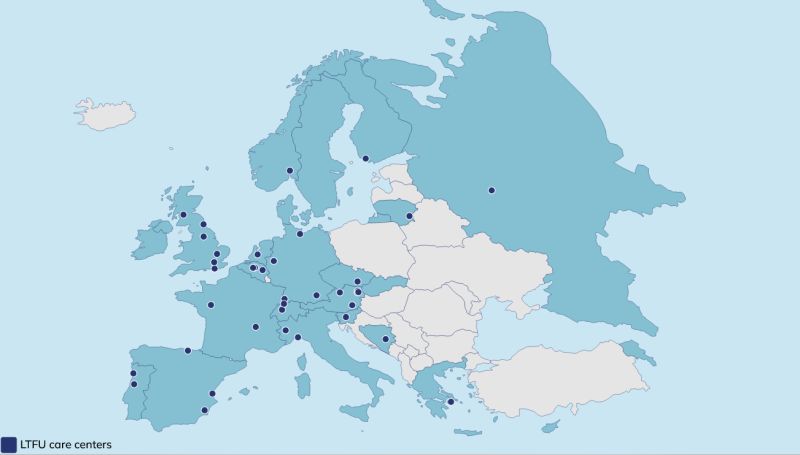In this interview, we meet Anna-Liesa Filbert (Project Manager), Doro Niehoff (Data manager), Diana Walz (IT specialist) & Desiree Grabow (Coordinator) from UMC-Mainz in Germany.

Desiree Grabow


Anna-Liesa Filbert

Doro Niehoff
Why did you join PanCareSurPass?
Anna-Liesa: It is my ambition to conduct research in the field of late effects after cancer in childhood and adolescence.
Doro: As a data manager, I prefer to work in projects whose goal I strongly support. That’s why I’m happy to be involved in the implementation of SurPass in Germany and Europe.
Diana: I want to use my IT experience for meaningful and community-relevant work.
Desiree: Riccardo and I initiated PanCareSurPass as there is a lack of supportive long-term follow-up care in most of the European countries. There is a need of a spread and translation of scientific information. The SurPass, ie a treatment summary and a care plan, is one of the tools needed for appropriate long-term care and we do think that every survivor in Europe should have the right to get one if he/she would like to get one.
You lead WP7 and WP8, and play a central role in WP4 – tell us about it!
In WP8: All ethics requirements that have to be met within the scope of the pre-implementation and implementation of the SurPass are elaborated. It consists of two requirements for the participation of humans, a “Protection of Personal Data” requirement and a report from the Advisory Board on how the system may impact clinical decision-making in different countries. All countries stick to GDPR. As we combine clinical data with demographic and personal data, the highest data protection and security measures have to be met.
In WP4: UMC-Mainz forms the central data center and is conducting the analyses in WP4 implementation study.
In WP7: This is the project management work package consisting of UMC-Mainz (Desiree Grabow) as the Coordinator, Riccardo Haupt as the Research Manager and Kylie O’Brien as administrative supporter.
Why do you think PanCareSurPass is an important project?
Prof. D’Angio stated decades ago that “Cure is not enough” with regard to surviving cancer in childhood and adolescence. Being a survivor or in the field of long-term surveillance and long-term follow up, one knows what he meant.
Many survivors are looking for GPs or oncological experts, literature and information about moderate to severe, even life-threatening late effects. Adequate information seems to be lacking given the case that childhood and adolescent cancer is a very rare disease.
Even worse, data of diagnosis and treatment are destroyed after a maximum of 30 years.
We do think that each survivor has the right to receive individual diagnostic and treatment related data, as this can be of future help to judge where a potential late effect could evolve from and to plan therapeutically ways of curing e.g. a second primary neoplasm (as e.g. the cumulative radiotherapeutic Dose is important for the second treatment).
Since it has already been shown in one clinic that an earlier version of the SurPass leads to homogenous care and has had a positive impact on almost all of the survivors of childhood and adolescent cancer who have had the chance to receive a SurPass, we think it is important to develop the SurPass further, e.g. in terms of digital integration to enhance people-centered care, and to make it available to as many survivors as possible.
It offers the opportunity to further improve the structure of long-term follow-up care and people-centered survivorship care. Likewise it supports as many doctors as possible with the necessary information, to recognize late effects at an early stage and thus to be able to treat them.
What makes this project unique for you?
Survivors want and have to get information about their diagnosis and treatment. They want this for decades and we have to deliver the SurPass as soon as possible. This project is highly relevant and of use for survivors.
What do you hope this project will achieve?
We hope that within the framework of the project we will manage to establish the necessary structure and implementation strategy to such an extent that it is promising for the future and can be expanded to all countries in Europe, and nationwide coverage in each country.
What’s the biggest challenge in your WP?
WP8: At the moment, probably the beginning. An equal interpretation of the GDPR by all partners.
WP4 & 7: To achieve the maximum for the implementation and further development of the SurPass in the very complex project and the tight schedule.
What’s the most fun thing in your WP?
That all of us, all our partners are joined in having the same aim!
What’s the most important benefit of your WP for survivors?
WP8: That survivors do not need to worry about data protection if they would like to be provided with a SurPass. And that they will receive a transparent, comprehensive and at the same time understandable consent form, which is combined with a patient information.
WP4: The implementation is especially looking at empowerment of the survivors and that the aims are met by providing the SurPass.
WP7: Doing our best to guide the many project partners smoothly through the tight schedule.
What else do we need to know about your WP or is there anything else you want to share?
The goal is too important to fail…therefore we adore, are thankful and enjoy that all WPs are working hard to accomplish it!
Many thanks for all your efforts on behalf of the Management Team! (Riccardo Haupt, Kylie O´Brien & Desiree Grabow)






